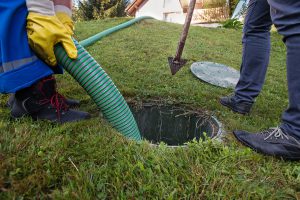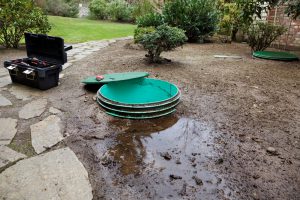
Wastewater in your septic system and sewage consists of bacteria, parasites, and other organisms that can be hazardous to the health of your family. This is basically one of the most important reasons why the septic system is a necessity in every home. With safe disposal and containment of the effluent and other waste substances, you will be able to protect yourself and your family, too. The septic system may not be a topic that’s discussed openly, but it always pays to know more about the system in cases of mishaps. Here are the basics.
How the Septic System Works
When you use the kitchen sink, bathroom, and toilet, the wastewater that comes down the drain will pass through the septic system pipes and into the tank. The solids that come with it will basically sink and go through systemic digestion so that it becomes sludge. On the other hand, oil, fat, and grease automatically float to the surface due to their nature. The liquid that remained, now referred to as effluent, will flow into the drainage pipes and finally get soaked in the soil to undergo natural treatment.
What You Need to Know
The septic system works differently depending on the size of your home and other characteristics. The soil, for instance, is one of the utmost considerations before installation. While coarse sands also need to be drained freely, moist ones like clay need larger receptacles in order to absorb the waste materials. It should also be noted that septic pipes are vulnerable to heavy objects so as much as possible do not go over the pipes with your mower or car so as not to damage the septic pipes.
How to Maintain the Septic System
Basically, the septic tank needs to be pumped every 10 years or so, depending on the usage of water at home. However, in order to ensure the smooth operation of the entire system, regular maintenance should be followed. Over time, the septic system parts will get rusted, corroded, cracked, or damaged. Fortunately, you can fix things before everything gets out of hand. Always have your septic system inspected regularly so you can enjoy its optimum benefits for a longer time.
What Problems May Possibly Occur

Without proper maintenance, the homeowner may experience all sorts of problems. The most apparent is clogging. If you experience slow draining sinks and toilets, there’s a huge possibility that the sludges and other solid materials have blocked the septic pipes. Another consequence is wastewater back-ups, that could not only be disgusting, but very unhealthy for you and your family in the long run. Older septic systems may also need to be replaced with the latest technology as dated ones may eventually experience operational failure.
What Not to Flush
To ensure that the septic system will work effectively and efficiently, you need to take note of all the things that could possibly cause clogging and blocking in the drainage pipes. For the kitchen sink, as much as possible you need to separate food waste from the water as even the tiniest of chicken or pork bones can still cause blocking if it accumulates. Same goes with fruit skins and seeds. Never flush tissue paper, sanitary napkins, and tampons in the toilet if you don’t want any water backup anytime soon.
Understanding how the septic system works will help you in taking care of the system. Many believe that the septic system is insignificant, but without it, your home might ultimately be unlivable. Be a responsible homeowner by consistently maintaining your septic system.